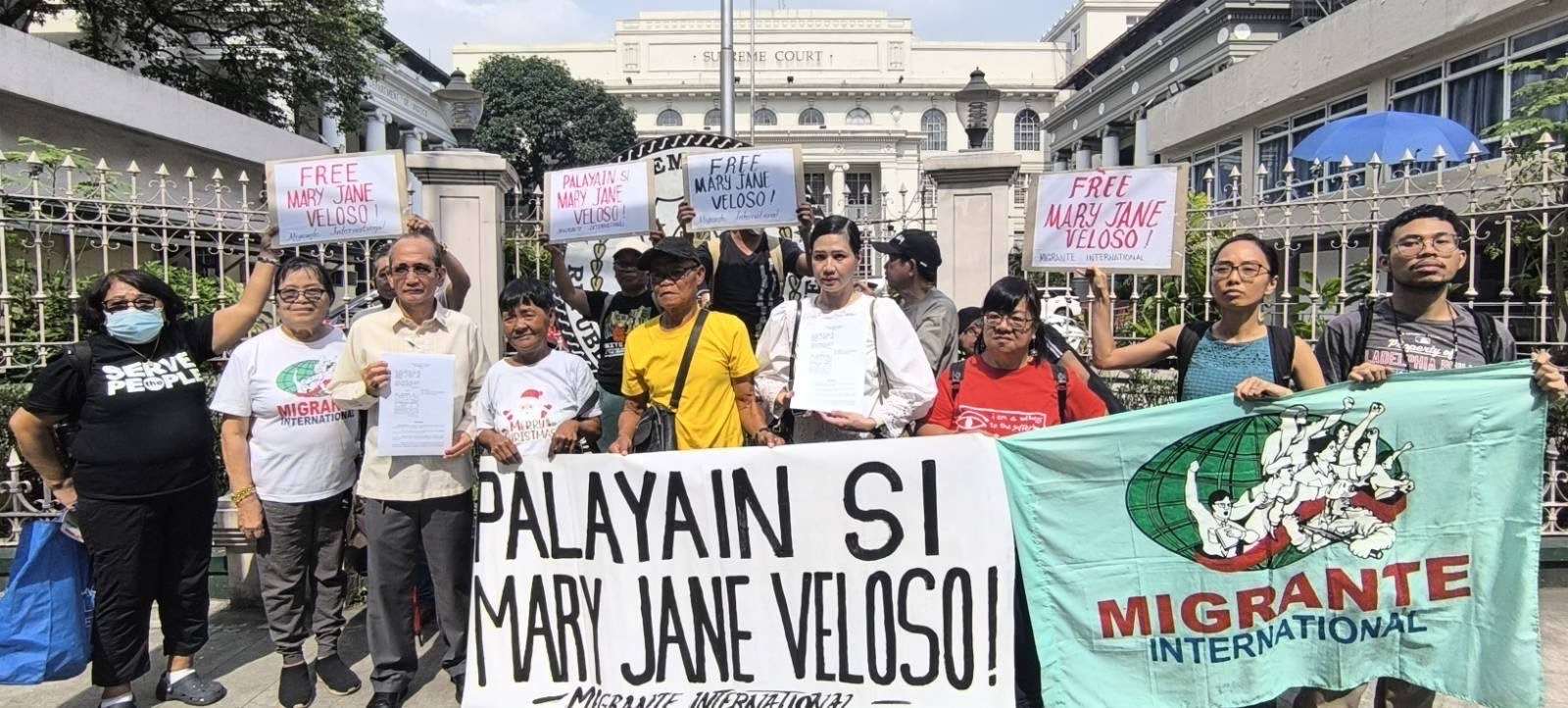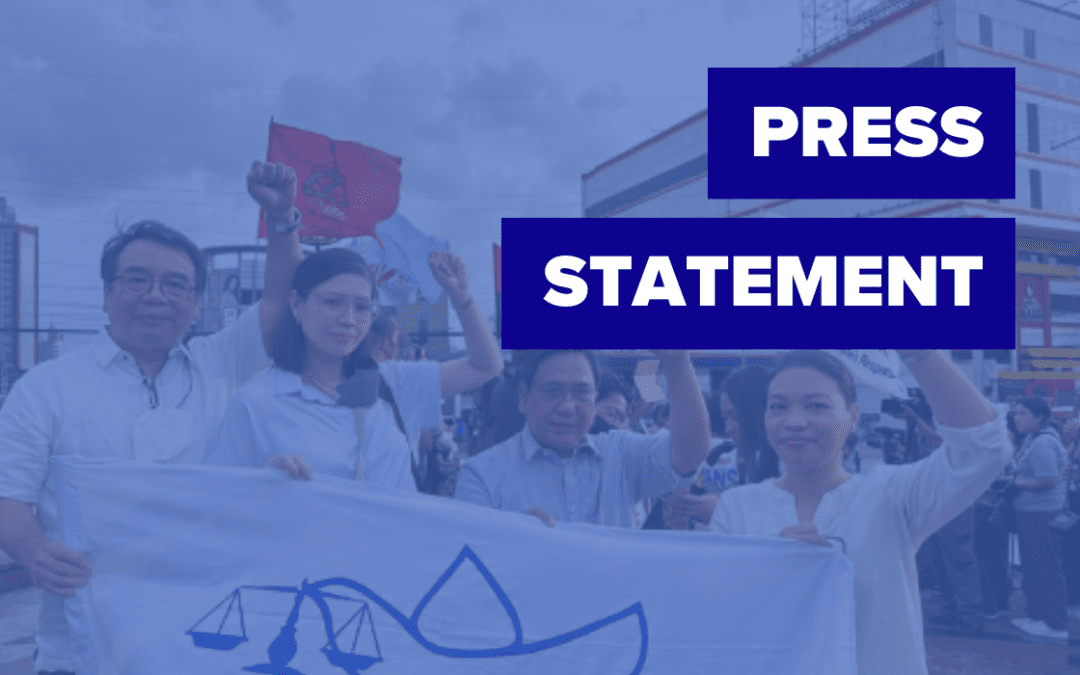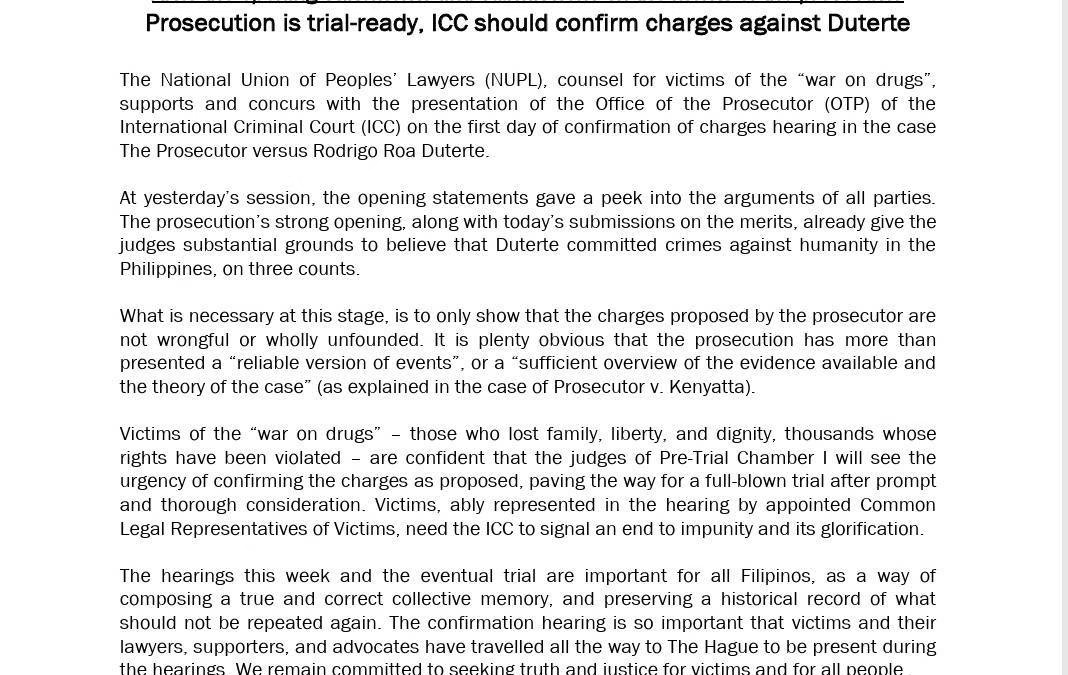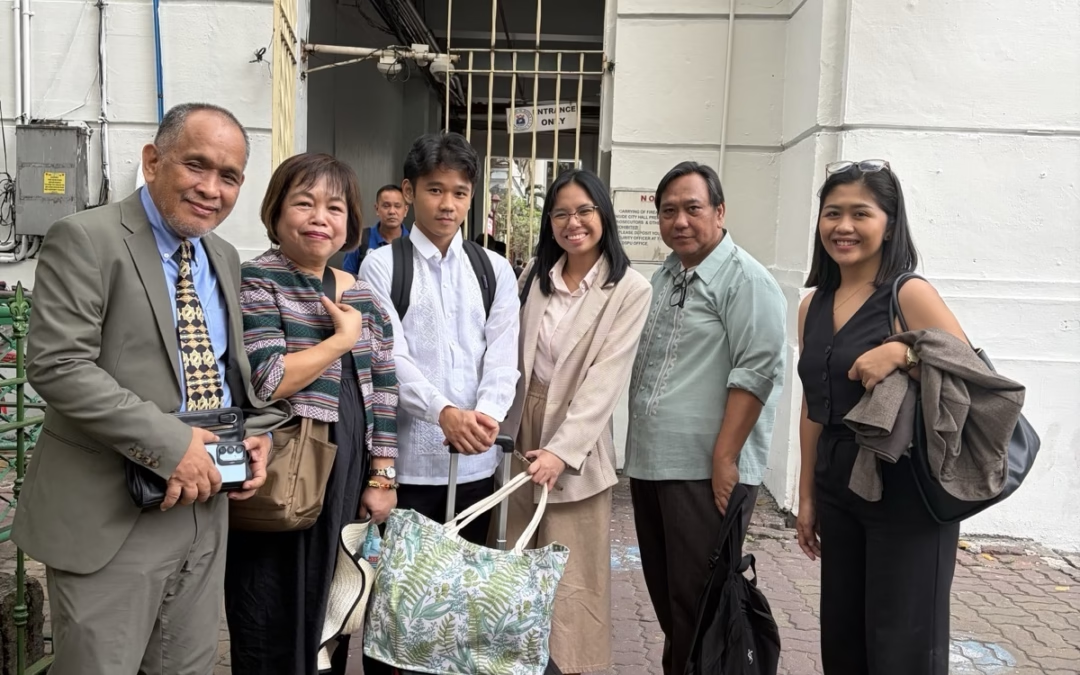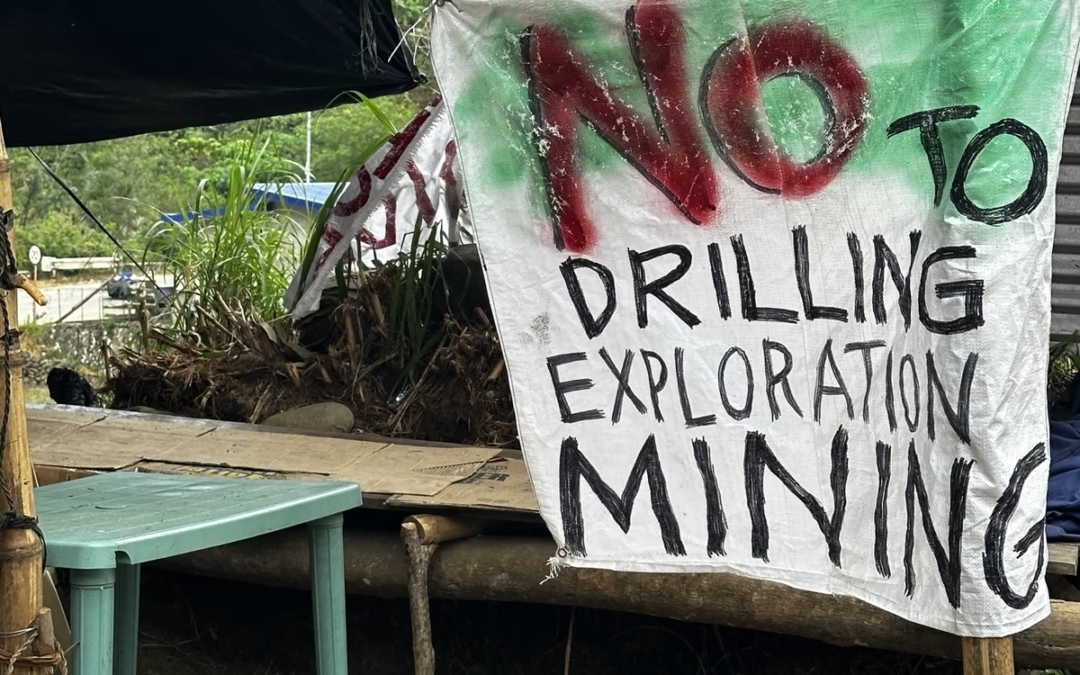November 14, 2025
Today, a petition for the writ of habeas corpus is being filed before the Supreme Court on behalf of Mary Jane Veloso—an overseas Filipino worker and a victim of human trafficking victim whose long struggle for justice has become emblematic of the failures and contradictions of our legal and political systems.
Despite surviving a near-execution and enduring nearly fifteen years of incarceration in Indonesia, Mary Jane remains behind bars—this time on Philippine soil, under the custody of our own government, without a single criminal charge, conviction, or commitment order from any Philippine court. Her continued detention is based solely on a “practical arrangement” between two States, forged entirely out of executive discretion and without apparent basis in any international or domestic law.
The petition seeks nothing less than the full measure of constitutional protection to which every person in this country is entitled: that no one shall be deprived of liberty without due process of law. It calls upon the State to explain what it has so far refused to disclose—the legal basis, if any, for keeping a trafficking victim imprisoned long after she was repatriated under an opaque, undisclosed diplomatic arrangement.
The petition rests on the following legal grounds:
- The Philippine government has no legal authority to enforce a foreign criminal judgment in the absence of a treaty on the transfer of sentenced prisoners or enabling law.
Mary Jane Veloso is detained in the Philippines without a charge, conviction, or commitment order from any Philippine court. This alone renders her confinement unconstitutional. Under Article III, Section 1 of the Constitution, no person shall be deprived of liberty without due process of law. The only lawful grounds for detention in the Philippines are clear: arrest pending trial, imprisonment by final judgment of a local court, contempt of court, or compulsory for mental illness or analogous grounds.
Mary Jane’s case satisfies none of these. She has not been tried or convicted under Philippine law. No court has ordered her detention. Instead, she remains imprisoned solely on the basis of a “practical arrangement,” which even expressly recognizes that it is the Philippine laws and rules that would govern her continued sentence.
Under the principle of territoriality, the Philippines has no jurisdiction to enforce a foreign court’s sentence, especially in the absence of a treaty or enabling law. Moreover, even if the Philippine government invokes Article 17 of the UN Convention against Transnational Organized Crime (UNTOC)—which allows States to enter into agreements for the transfer of sentenced persons—such agreements have no legal effect within Philippine jurisdiction unless backed by a treaty, statute, or constitutional authority.
The so-called “practical arrangement” with Indonesia partakes of an executive agreement. It is not a treaty. It was not ratified by the Senate, not enacted into law, and not grounded in any existing statute or constitutional power. As clarified in Saguisag v. Ochoa, “executive agreements must remain traceable to an express or implied authorization under the Constitution, statutes, or treaties.” They must merely implement laws or treaties already in force.
To allow a person’s imprisonment based solely on such an agreement, one concluded by the Executive without judicial or legislative imprimatur, would give the Executive a power it does not and should not possess: the unilateral authority to deprive a person of liberty.
- Mary Jane’s continued detention violates international and domestic law protecting trafficking victims.
Even if the Philippine government could lawfully accept Mary Jane’s repatriation under Article 17 of the UNTOC, it cannot detain her in violation of its more specific obligations under the Palermo Protocol and Republic Act No. 9208 or the Anti-Trafficking in Persons Act of 2008.
The Palermo Protocol—ratified by the Philippines in 2002 and in force since 2003—supplements the UNTOC but focuses specifically on the protection of trafficking victims, especially women and children. While the Protocol does not explicitly prohibit punishment, various international human rights bodies have interpreted it to reflect the emerging norm of non-punishment: that victims of trafficking should not be penalized for acts that are directly linked to their trafficking.
Articles 7 and 8 of the Protocol underscore this protective duty. Article 7 requires States to adopt humanitarian and compassionate measures for trafficking victims, including allowing them to remain in the country in appropriate cases. Article 8, which governs repatriation, obligates States to ensure the safe return of victims, taking into account their status as trafficking victims and the legal proceedings connected to their exploitation. Most importantly, Article 8 makes clear that repatriation must not undermine any protections to which victims are entitled under domestic law.
In line with these commitments, the Philippines enacted R.A. 9208, as amended, which gives binding domestic effect to the non-punishment principle. Section 17 of the law is unequivocal: trafficked persons shall not be penalized for crimes directly related to their trafficking, even if they “consented” to the act or were acting under orders from their traffickers.
Mary Jane is formally recognized by the Philippine government as a trafficking victim and private complainant in the ongoing criminal case against her recruiters. Her arrest and conviction abroad were the direct result of the deception and exploitation she suffered at their hands. To continue enforcing that foreign sentence now, on Philippine soil, is a direct breach of both international and domestic law.
Repatriation was presented as a humanitarian gesture, but in effect, it simply moved Mary Jane’s incarceration onto Philippine jurisdiction. The much-ballyhooed option of clemency, openly acknowledged by Indonesia as within President Marcos’ power, has been given inordinate time to materialize. But it remains, at best, a distant possibility—a promise quietly shelved and never fulfilled.
This petition tests the limits of executive discretion, the authority of the courts, and the State’s own commitment to the human rights treaties it has pledged to uphold. The writ of habeas corpus exists precisely for circumstances like this—to provide swift and effective relief to those unlawfully restrained of their liberty and to reaffirm that no person shall be deprived of liberty without due process of law.
Reference:
Atty. Josalee S. Deinla
NUPL Secretary General
+9639174316396
